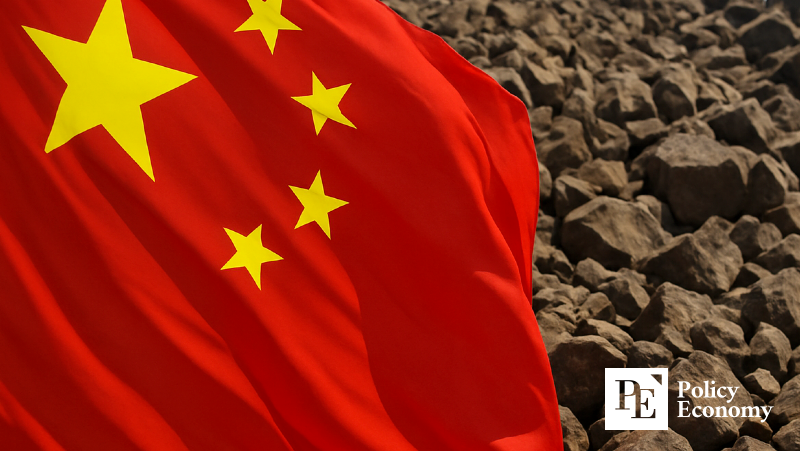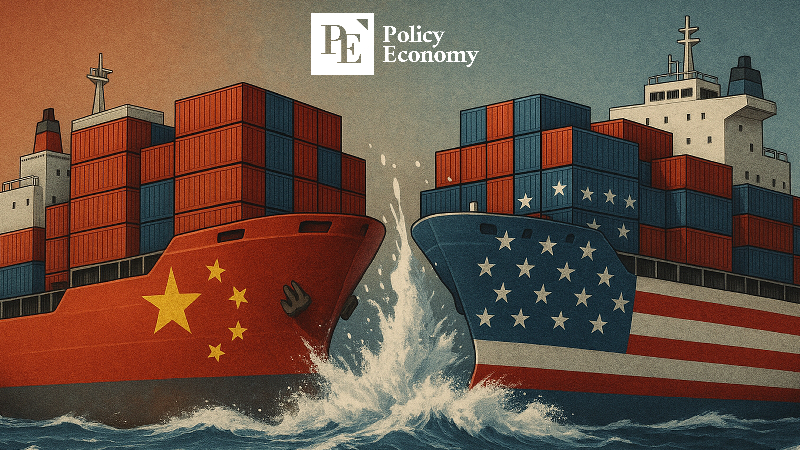Transshipment and Label Switching: U.S. Circumvents China's Rare Earth Export Ban
Input
Modified
U.S. Imports Three Years' Worth of Antimony from Thailand and Mexico China's Export Volume Surges, Indicating Clear Transshipment China's Strategic Use of Rare Earths as Diplomatic Leverage Backfires on Domestic Industry

Despite China's implementation of a rare earth export ban, the United States continues to actively import these critical minerals through indirect channels. Recent reports reveal that U.S. companies have been sourcing antimony from Thailand and Mexico, effectively bypassing China's restrictions. This development suggests that China's efforts to control the global supply of essential minerals may be faltering amid escalating technological competition with the U.S.
Chinese-Owned Thai Company Facilitates Transshipment
On July 9, Reuters reported that following China's ban on exporting key minerals to the U.S. in December 2024, American firms have been importing these materials via Thailand and Mexico. China's ban, effective from December 3, 2024, targeted antimony, gallium, and germanium—materials vital for batteries, semiconductors, and military technologies. Nonetheless, U.S. import levels have rebounded to pre-ban figures, with evidence pointing to the involvement of Chinese enterprises in these transactions. Customs and shipping records indicate that at least one Chinese-owned company is engaged in this trade.
Between December and April, U.S. customs data show imports of 3,834 metric tons of antimony oxide from Thailand and Mexico—surpassing the combined total of the previous three years. Notably, neither country is a significant producer of antimony, each possessing only a single smelting facility. This anomaly strongly suggests transshipment activities.
Specifically, Thai Unipet Industries, a subsidiary of China's Youngsun Chemicals, has been a key player. Between December 2024 and May 2025, Unipet shipped at least 3,366 tons of antimony products from Thailand to the U.S.—a 27-fold increase compared to the same period the previous year. The primary recipient was Youngsun & Essen, located in Texas, which had previously sourced directly from Youngsun Chemicals before the export ban.

Export Controls Backfire on Chinese Firms
China's strategy to leverage rare earth and critical mineral exports as a bargaining chip against the U.S. has inadvertently harmed its own industries. Following the announcement of new rare earth restrictions in April 2025, global automotive manufacturers faced component shortages within two months, leading some to halt production lines. While these measures compelled former U.S. President Donald Trump to the negotiation table, they simultaneously exacerbated challenges for Chinese companies already grappling with a sluggish domestic economy.
According to Reuters, as of 2024, exports accounted for 18% to 50% of revenue for China's 11 major listed magnet producers. However, in the two months following the export controls, magnet exports plummeted by 75%. Small and medium-sized manufacturers reduced output by approximately 15% during April and May. Eli Saklatvala, a senior analyst at commodity information provider Argus, noted, "Magnet producers are under pressure from both halted exports and weak domestic demand, facing uncertainty about when recovery will occur and temporarily losing key customer bases."
U.S. Sanctions Lead to 68% Decline in Chinese Shipbuilding Orders
Conversely, U.S. sanctions targeting China's strategic industries have yielded significant effects. By imposing high port fees on ships built, owned, or operated by Chinese entities and levying steep tariffs on Chinese-made equipment such as gantry cranes, the U.S. has disrupted China's dominance in global shipbuilding.
Data from British maritime research firm Clarkson Research indicate that in the first half of 2025, new orders for Chinese shipbuilders totaled 26.3 million deadweight tons (DWT), a 68% decrease compared to the same period in 2024. Consequently, China's share of global new shipbuilding orders dropped from 75% to 56%. The impact extends beyond ship construction to maintenance and repair services. The market share for China's very large crude carrier (VLCC) repair and maintenance sector, which averaged 70% between 2021 and 2024, fell to approximately 50% in the first half of 2025.





















